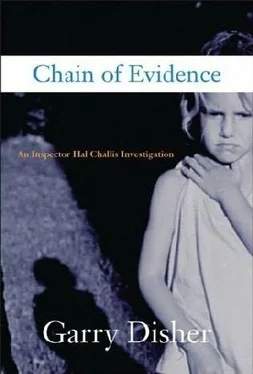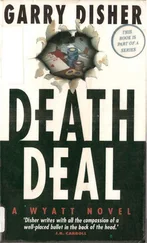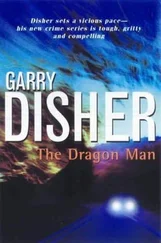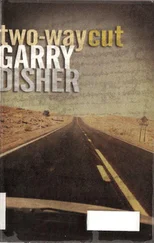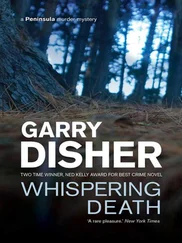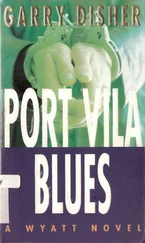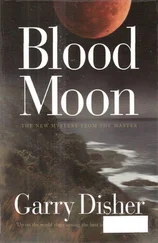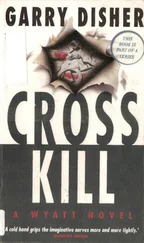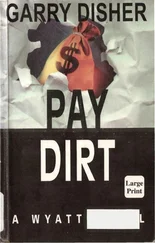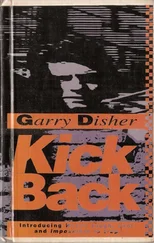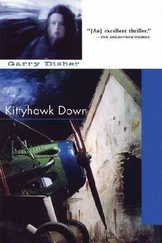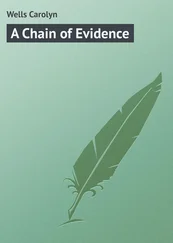Garry Disher - Chain of Evidence
Здесь есть возможность читать онлайн «Garry Disher - Chain of Evidence» весь текст электронной книги совершенно бесплатно (целиком полную версию без сокращений). В некоторых случаях можно слушать аудио, скачать через торрент в формате fb2 и присутствует краткое содержание. Жанр: Полицейский детектив, на английском языке. Описание произведения, (предисловие) а так же отзывы посетителей доступны на портале библиотеки ЛибКат.
- Название:Chain of Evidence
- Автор:
- Жанр:
- Год:неизвестен
- ISBN:нет данных
- Рейтинг книги:3 / 5. Голосов: 1
-
Избранное:Добавить в избранное
- Отзывы:
-
Ваша оценка:
- 60
- 1
- 2
- 3
- 4
- 5
Chain of Evidence: краткое содержание, описание и аннотация
Предлагаем к чтению аннотацию, описание, краткое содержание или предисловие (зависит от того, что написал сам автор книги «Chain of Evidence»). Если вы не нашли необходимую информацию о книге — напишите в комментариях, мы постараемся отыскать её.
Chain of Evidence — читать онлайн бесплатно полную книгу (весь текст) целиком
Ниже представлен текст книги, разбитый по страницам. Система сохранения места последней прочитанной страницы, позволяет с удобством читать онлайн бесплатно книгу «Chain of Evidence», без необходимости каждый раз заново искать на чём Вы остановились. Поставьте закладку, и сможете в любой момент перейти на страницу, на которой закончили чтение.
Интервал:
Закладка:
She snorted, throwing her arms around him again. ‘It’s so good to see you. You’re a sight for sore eyes.’
When she released him he saw that her eyes were, in fact, sore looking. ‘How is he?’
‘Sweetie,’ Meg told him gently, ‘he’s dying.’
Well, she’d told him that on the phone earlier in the week, and so he’d hastily arranged a month’s leave. What she meant now was, how else did Challis expect their father to be? It was faintly reproving, and Challis couldn’t blame her. Their mother had died a year ago, and their father had immediately declined. Meg, who lived on the other side of the Bluff, near the tennis courts, had been the one to nurse both of them. Their mother would have been undemanding, but Challis guessed that their father, an exacting man even in good health, was making hard work of dying. There rose between Challis and his sister a knot of unresolved feelings: Challis had escaped, Meg hadn’t. ‘I’m sorry.’
She brightened. ‘You’re here now’
Challis had asked for a month, but McQuarrie, his boss, a superintendent in regional command headquarters, had clearly thought that excessive. As if he wants my father to hurry up and die, Challis had thought at the time. ‘I have several weeks of accrued leave owing to me, sir,’ he’d said. ‘And Sergeant Destry is perfectly capable of holding the fort until I get back.’
McQuarrie, a small man who disapproved of many things, said, ‘Your father, did you say?’
‘He’s dying, sir.’
‘Very well.’
The super, who knew more about meeting procedures than catching bad guys, would give Ellen a hard time, but Challis couldn’t do anything about that now. Besides, Ellen knew how to look after herself.
He followed Meg along the path to the verandah steps. ‘Where’s Eve? She inside with Dad?’
Meg shook her head. ‘Studying. Always studying.’
Challis’s niece was in Year 12. He’d last seen her a year ago, at his mother’s funeral: tall, lovely, and absolutely desolate. He hated to think of Eve in pain. First her father, then her grandmother, and now her grandfather.
‘You’ll see her eventually,’ Meg said.
Challis stepped into the house behind her, into rooms unchanged from when he’d been a boy, into sluggish air laden with the odours of a dying man. For a brief mad instant, he looked for his mother to come bustling from the kitchen, ready to wrap him in loving smiles and hugs. The grief hit him like a punch to the heart: he stopped, swayed, breathed in and out.
‘Hal?’
Challis swallowed. ‘Nothing, sis, I’m okay.’ He paused. ‘Mum.’
Meg looked fleetingly unimpressed. This wasn’t a competition, but she’d been closer to their mother than Challis had, and she’d had to cope with their father’s decline. Then, relenting, she gently touched his arm and called, ‘Dad! Look who’s here.’
She’d set the old man up in a brightly upholstered cane chair in the screened-in back porch. Here the sun penetrated for the greater part of the day. It was a cheerful room, furnished with other cane chairs, a pair of glass-topped tables on cane legs, flowery curtains pulled back on the windows. White walls, a couple of vaguely Turkish rugs on the terracotta tiled floor. Challis took these things in first, a way of delaying the inevitable. Then, his heart hammering, he said, ‘Hello, Dad.’
His father stirred feebly, a bony hand fluttering out from under the tartan rug that enclosed him. Pathetic white ankles above carpet slippers. A food-stained blue dressing gown with shiny lapels revealed his sunken chest and throat. His face was sharp and fleshless, his hair a few wispy white tufts. Finally, the eyes that had always had the power to unnerve Challis. They were unchanged.
‘My boy,’ the old man said.
Overcome, Challis crossed the short distance, knelt, and hugged his father. A hand beat feebly on his back. ‘That’s enough, that’s enough, I’m not dead yet.’
Challis stood back, blinking. His father wasn’t easily comforted. He was too powerful for that. ‘Sorry to see you like this, Dad.’
His father gave him a ghastly smile. ‘It happens to all of us.’
Challis returned the smile.
‘I’ll make tea,’ Meg said, and presently began to bang around in the kitchen. Domesticity settled over the house. Challis and his father talked. Challis even held a papery old hand for a while, until his father gently removed it. They had never been ones to embrace. They had never kissed.
‘So, what are the bad guys up to in your neck of the woods?’
Challis went very still, calculating madly. Was this the lead up to a confrontation? His father had always said, ‘You’ve got a good brain. Why the hell did you go into the police?’ Challis thought he understood: Murray Challis had been born in the 1920s and seen his family suffer during the Great Depression. The Second World War had been his way out. He’d met educated men in the Air Force. Education was the key. It didn’t matter that his son had completed a bachelor degree at night school in recent years: it was the fact that his son hadn’t done anything with it but remained in the police force. ‘Your average criminal is stupid,’ was the refrain. ‘He brings you down to his level. He certainly doesn’t elevate you.’
‘Yes, but putting him in jail, and getting justice for the victim, elevates me,’ Challis would reply.
He could feel his asthma starting up. He found himself telling his father about a lawyer he’d arrested a month earlier. The man had a cocaine habit. He’d stolen two million dollars from clients who’d invested their life savings with him. ‘Picked him up boarding a plane to Bangkok,’ said Challis challengingly.
His father patted his wrist. ‘I’m a family solicitor, son, not a lawyer.’
Meg came in with a tray: blueberry muffins, teapot, mugs, milk and sugar. They ate, and presently the old man fell asleep. Challis and Meg chattered. Their father awoke and said, ‘How long are you staying, son?’
Challis didn’t know what to say. Until you die? He coughed. ‘They’ve given me a month off, Dad.’
So please don’t die after that time?
Meg rescued him. ‘Be glad he’s here, Dad.’
Their father winked. ‘She thinks I’m dying.’
Challis barked an uncomfortable laugh.
Then the old man entered one of the mood swings that had always kept Challis and Meg on their toes. ‘Which way did you come?’ he demanded.
‘Dad,’ said Meg warningly.
Challis didn’t visit very often, making the two-day car journey from his home on the Mornington Peninsula in Victoria to Mawson’s Bluff only once every two or three years, generally at Christmas time. He would break the drive in Adelaide or, if he’d set out late, in Keith or Bordertown. There had been only two exceptions to that in the past decade: when his mother had died last spring, and when Meg’s husband had disappeared on a winter’s day five years earlier. On both occasions, Challis had flown to Adelaide and driven up in a hire car the same day.
He considered lying now. It was his father’s fierce contention that Challis should always skirt Adelaide and detour via the Barossa Valley, which was beautiful wine-growing country settled by German immigrants in the 1800s. The old man’s mother, Lottie Heinrich, had been born there. But Challis couldn’t lie to him, and began to describe his route: through Adelaide, up into the wheat and sheep country of the mid-north, and eventually to Mawson’s Bluff, in marginal country near the Flinders Ranges.
His father began to shake his head. If he’d had a walking stick he’d have thumped it on the floor.
‘How often have I told you,’ he said, ‘avoid Adelaide, go through the Barossa. It saves time and petrol, and it’s safer.’
Читать дальшеИнтервал:
Закладка:
Похожие книги на «Chain of Evidence»
Представляем Вашему вниманию похожие книги на «Chain of Evidence» списком для выбора. Мы отобрали схожую по названию и смыслу литературу в надежде предоставить читателям больше вариантов отыскать новые, интересные, ещё непрочитанные произведения.
Обсуждение, отзывы о книге «Chain of Evidence» и просто собственные мнения читателей. Оставьте ваши комментарии, напишите, что Вы думаете о произведении, его смысле или главных героях. Укажите что конкретно понравилось, а что нет, и почему Вы так считаете.
